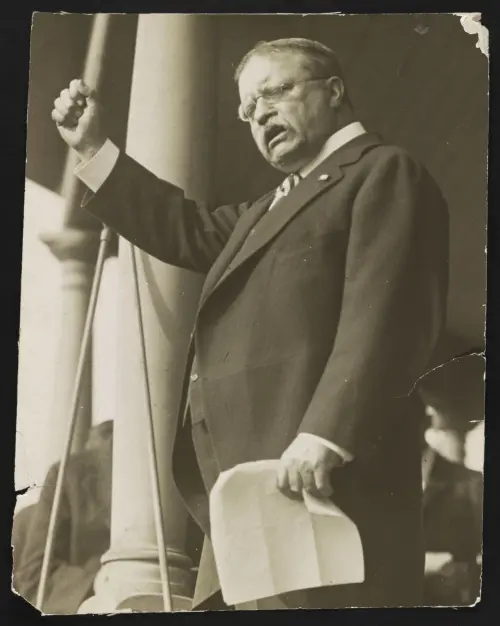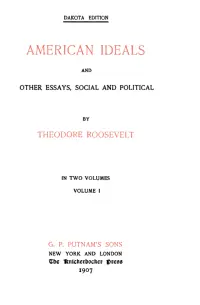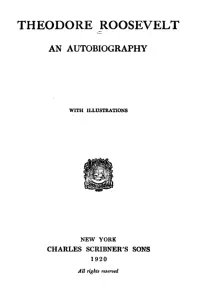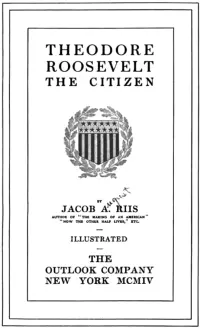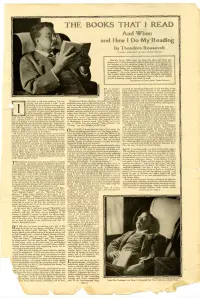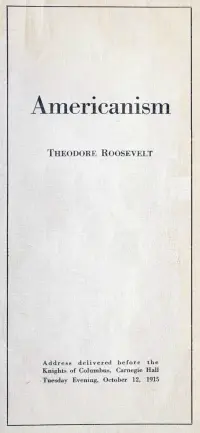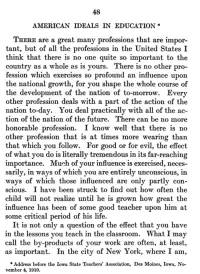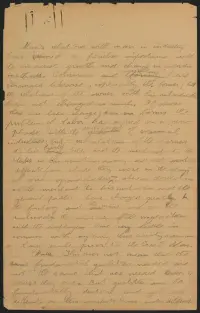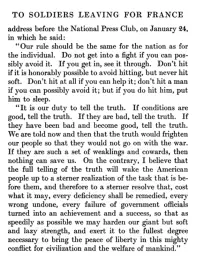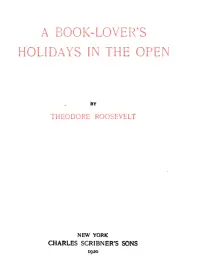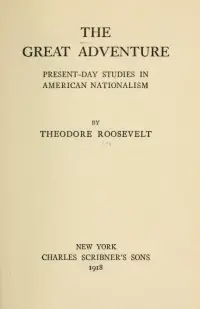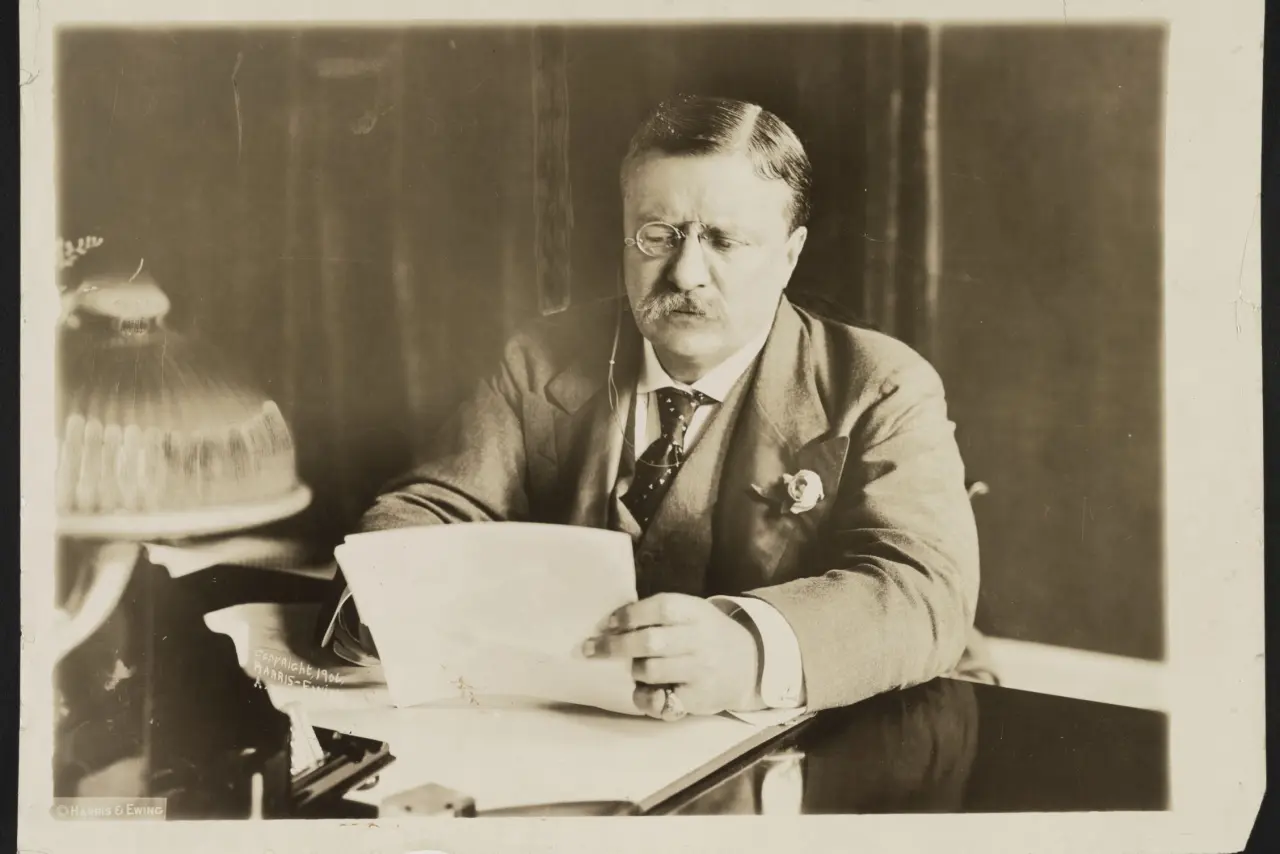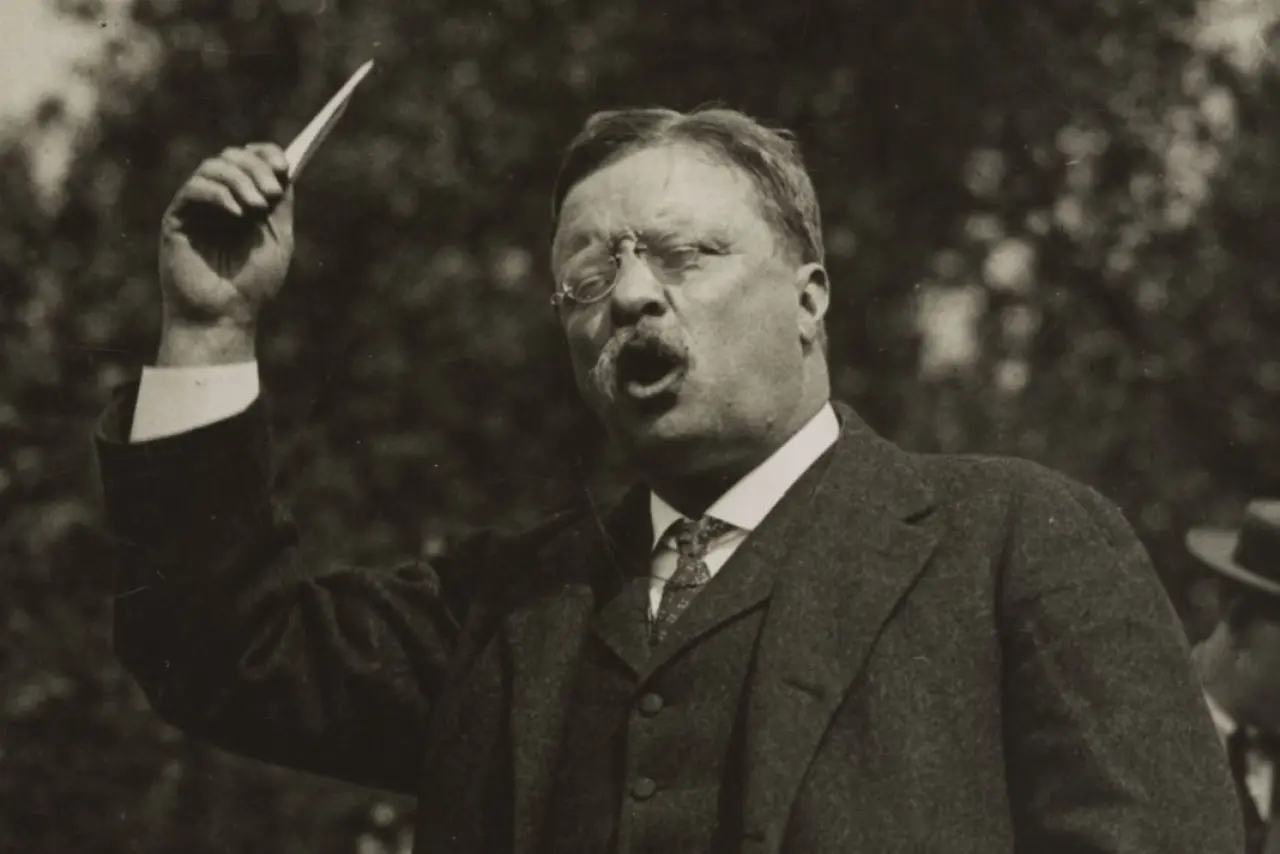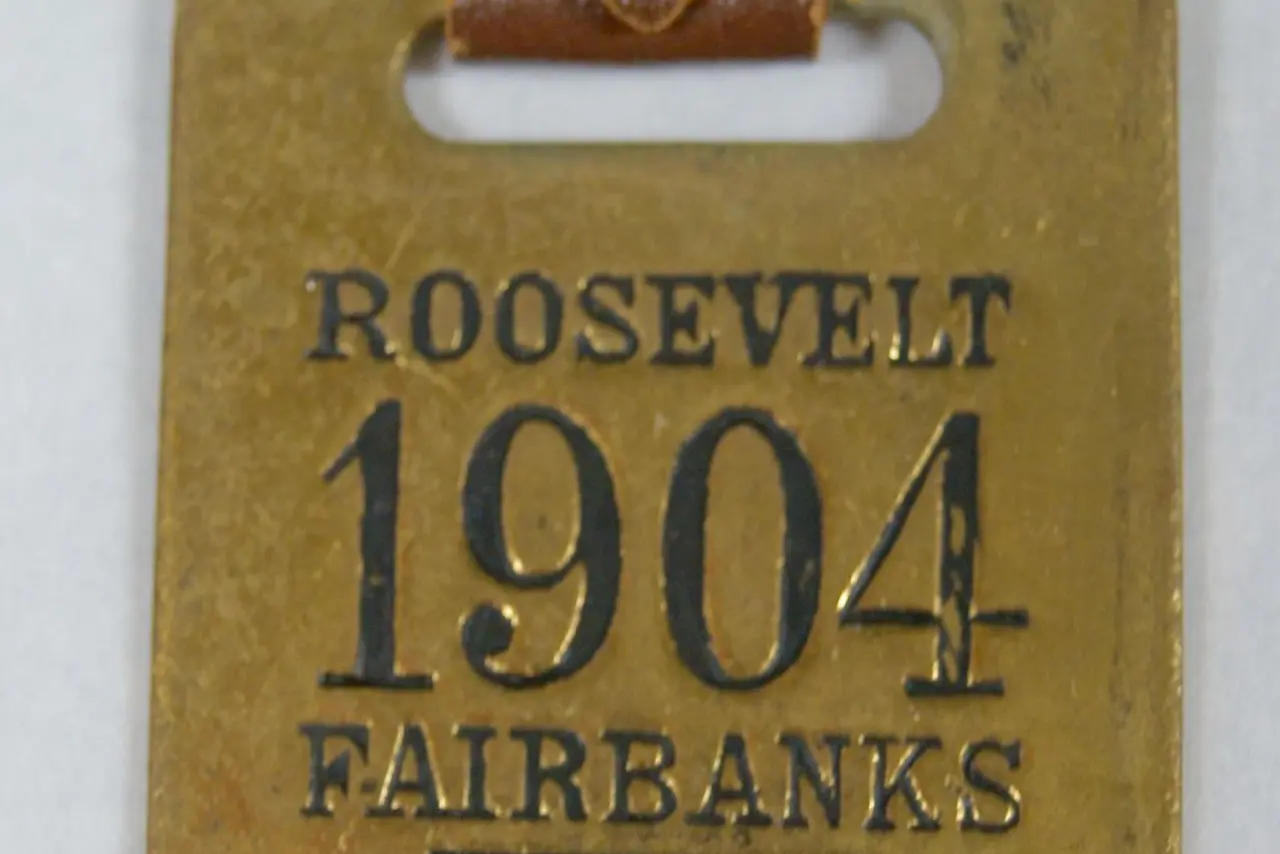DID TR REALLY SAY THAT?
Few figures in American history are quoted as often—or as inaccurately—as Theodore Roosevelt. From rugged declarations about the “man in the arena” to pithy remarks on courage, patriotism, and perseverance, Roosevelt’s supposed words circulate endlessly on social media, in motivational speeches, and even in political debates. Yet many of these lines were never spoken or written by him at all.
The following is a list of quotations misattributed to Theodore Roosevelt. Some quotations below demonstrate partially accurate recollections of our 26th president’s words and actions while others are completely spurious. You’ll discover the authentic Roosevelt quotations from the myths, exploring how genuine wisdom from the nation’s 26th president became blended with modern inventions and misattributed aphorisms.
Misquoted: “The more you know about the past, the better prepared you are for the future.”
This quotation, which is found not only online but also in published books, conveys a sentiment Theodore Roosevelt actually suggested, but not the words themselves. The correct version comes from TR’s book, American Ideals.
“A nation’s greatness lies in its possibility of achievement in the present, and nothing helps it more than the consciousness of achievement in the past.” ~Theodore Roosevelt
Misquoted: “Do what you can, with what you have, where you are.”
This quotation is widely attributed to Theodore Roosevelt, but it’s misquoted in two ways. First, TR himself credits it to Squire Bill Widener in his Autobiography. Second, the quotation TR references uses the word “got” instead of “have.” The misquotation is almost correct in both senses, but not quite.
“Do what you can, with what you’ve got, where you are.” ~Theodore Roosevelt
Misquoted: “The only man who never makes mistakes is the man who never does anything.”
This quotation attributed to TR appears regularly online and in published books. It comes from Jacob Riis’s writing, including his 1900 article in The American Monthly Review of Reviews and his 1904 book, Theodore Roosevelt: The Citizen, though it is slightly altered. In his book, Riis calls it one of TR’s “maxims,” so it could be a phrase TR originated or one that he adopted—which is more likely.
“The only man who makes no mistakes is the man who never does anything.” ~Theodore Roosevelt
Misquoted: “I am a part of everything that I have read.”
This quotation attributed to TR is a sentiment with which he likely would have agreed, but we have not been able to source this quotation to TR. He does have a variety of related quotations to books, as he was a voracious reader. TR loved books his entire life, a sentiment he conveyed in an 1876 letter to his father: “My books make me feel quite at home.”
Over thirty years later, in a 1909 letter to Henry Cabot Lodge and his wife, Anna Cabot Lodge, TR again writes about his love for books: “There are so many thousand good books, in so many languages, suited for so many different moods, and needs, and individuals, that all a man ought to do is to say that a given number of books proved of interest and use to him personally at a given time under given conditions.”
TR’s article, “The Books That I Read and When and How I Do My Reading,” published in Ladies’ Home Journal in April 1915, details just some of the books he read throughout his life.
Misquote: “Every immigrant who comes here should be required within five years to learn English or leave the country.”
TR believed strongly in avoiding “hyphenated Americanism,” meaning that people should be Americans first and assimilate to adopt American culture instead of emphasizing their connection to their country of origin.
TR did say something similar to this spurious quotation in a speech delivered at Carnegie Hall in October 1915 about Americanism, but the context is important. (TR also didn’t list a time limit of when immigrants should leave.) What TR said emphasizes the necessity of immigrants having the opportunity to learn English while the misquote implies that immigrants are on their own.
“It would then be a duty to see that [immigrants] were given ample opportunity to learn to read and write and that they were deported if they failed to take advantage of the opportunity. No man can be a good citizen if he is not at least in process of learning to speak the language of his fellow-citizens. And an [immigrant] who remains here without learning to speak English for more than a certain number of years should at the end of that time be treated as having refused to take the preliminary steps necessary to complete Americanization and should be deported. But there should be no denial or limitation of the [immigrant’s] opportunity to work, to own property and to take advantage of civic opportunities.” ~Theodore Roosevelt
Misquote: “Never throughout history has a man who lived a life of ease left a name worth remembering.”
This spurious quotation conveys a sentiment with which TR likely would have agreed and is a partially accurate recollection of something he said in an address before the Iowa State Teachers’ Association in November 1910. TR concludes his speech congratulating and praising teachers because he knows their task is hard.
“Nothing in this world is worth having or worth doing unless it means effort, pain, difficulty. No kind of life is worth leading if it is always an easy life. . . . I have never in my life envied a human being who led an easy life; I have envied a great many people who led difficult lives and lead them well.” ~Theodore Roosevelt
Misquote: “The best executive is the one who has sense enough to pick good men to do what he wants done.”
This quotation is attributed to Theodore Roosevelt, but there is no evidence that he ever said it. To the best of our knowledge, it first appeared in a publication called The Credit World in 1930. However, TR did say similar things that emphasized his understanding of good leadership.
In fact, TR believed, “If I have anything at all resembling genius it is the gift for leadership.” One such remark came from TR’s handwritten reflections on employers and employees entitled “Man in Industry.”
“The real leader shows his leadership less by what he himself does than by what he gets the men under and with him to do; and in the long run this means that these men must like him as well as admire him; if instead of their sympathy he arouses their hostility, sooner or later he and they will pay dearly.” ~Theodore Roosevelt
Misquote: “Don’t hit at all if it is honorably possible to avoid hitting; but never hit soft!”
This quotation attributed to TR is mostly accurate, but it does combine elements of several sentences together. It’s also important to discuss the context of this quotation. In January 1918, TR came to Washington, DC to discuss World War I with Congress and made a speech before the National Press Club discussing his belief in the need for preparedness and action on the part of the federal government—specifically President Woodrow Wilson—concerning American involvement in the war.
“Do not get into a fight if you can possibly avoid it. If you get in, see it through. Don’t hit if it is honorably possible to avoid hitting, but never hit soft. Don’t hit at all if you can help it; don’t hit a man if you can possibly avoid it; but if you do hit him, put him to sleep.” ~Theodore Roosevelt
Misquoted: “The joy in life is his who has the heart to demand it.”
This misquotation is very close to what Theodore Roosevelt actually wrote, but it’s not quite correct. The actual quotation appears at the end of the forward to his book, A Book-Lover’s Holidays in the Open, published in 1916, in which TR details his experiences in the great outdoors. The word “living” replaces the word “life” in the misquotation: “The joy of living is his who has the heart to demand it.”
Misquoted: “Patriotism means to stand by the country. It does not mean to stand by the president or any other public official.”
This misquotation actually uses every single word in the correct order that TR wrote in The Great Adventure, published in 1918. However, TR had an additional phrase at the end of the second sentence that changes the meaning of the sentence somewhat.
“Patriotism means to stand by the country. It does not mean to stand by the President or any other public official save exactly to degree in which he himself stands by the country. It is patriotic to support him in so far as he efficiently serves the country.” ~Theodore Roosevelt
If you’d like to know whether or not something attributed to Theodore Roosevelt he actually said, feel free to reach out to the Library at hello@trlibrary.com. We will continue to add to this digital encyclopedia article as we come across additional spurious quotations. Last updated October 22, 2025.
